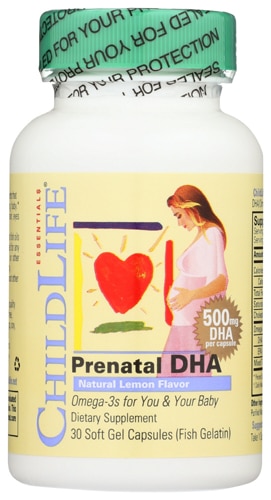Motherhood is often portrayed in one of two ways: Marred by utter exhaustion or the most blissed-out part of a woman’s life. And while any mom will tell you that both hold true—oftentimes within the same hour—what the media tends to neglect is how beneficial motherhood can be for your health. From cultivating a better sense of bodily awareness to strengthening cardiovascular health, motherhood can create not only a wonderful child but also promote a healthier, happier mom. Here are five potential health benefits you may enjoy in maternity and beyond:
1. Elevated levels of “feel-good” hormones
Midnight ice cream runs and mid-day meltdowns might be blamed on hormones in pregnancy (and post childbirth), but not all the hormonal fluctuations a mother endures are tear-out-your-hair agonizing.
During pregnancy and after, women experience heightened levels of oxytocin. Frequently referred to as “the love hormone,” oxytocin is a potent neurotransmitter that not only plays a role in mother-child bonding and breastfeeding, but also fosters kindness, empathy, tranquility—and intensified orgasms. Skin-to-skin contact, breastfeeding and infant massage can increase oxytocin levels, leading to a bond unlike any other. And if you’re expecting, expect to feel, well, good. As The Atlantic puts it, “What scientists do know…is that becoming a parent looks—at least in the brain—a lot like falling in love.”
2. Easier, less painful periods
If you’re a lifelong sufferer of excruciating cramps, you’ll be thrilled to hear that having children may offer some relief when your periods return.
As What to Expect When You’re Expecting reports, “Many women find that their menstrual cramps are much less painful—or even nonexistent—after the birth of their first baby. Doctors aren’t sure why, but women who have vaginal births report more relief than those who have C-sections, a factor that points to the stretching of the uterus during delivery as a possible mechanism for this pregnancy perk.”
3. Improved weight management
Forget pregnancy pounds: Post-childbirth and a number of new moms may savor a fitter, sleeker physique than before.
How? Breastfeeding (if that’s the route you take) is believed to burn 480 calories per day, while everything that’s required of mothers from infancy on—running after a toddler, lifting a child, carting in groceries, learning a sport with your teen—encourages physical fitness. What’s more, some women who engaged in less-than-virtuous behaviors pre-motherhood (such as smoking, drinking, poor sleep hygiene and eating unhealthily) give up their habits in motherhood and strive, instead, for well-being and longevity.
4. Better sex
For some women, pregnancy may come with a boatload of discomfort, from heartburn and bloating to fatigue and moodiness.
But what’s often overlooked is just how great sex can be when you’re expecting. Three key hormones—estrogen, progesterone and testosterone—ramp up during pregnancy, and all can amplify your sex drive. The second trimester can be particularly passionate, in that increased blood flow to your pelvic region may lead to enriched sexual pleasure.
5. A stronger heart
And we don’t mean just of the loving kind:
A study determined that older women who had been pregnant four or more times were, according to What to Expect, “half as likely to die from stroke than those with fewer or no pregnancies.” Scientists hypothesize this may be due to the enhanced levels of estrogen during pregnancy, which may “counter the loss of estrogen in menopause”—a dearth that can contribute to heart disease. Four children might seem extreme for some, but know that breastfeeding just one child may decrease your vulnerability to cardiovascular disease. And with your heart healthy and happy, you’ll have the energy to embrace both the challenges and joys of raising an equally healthy, happy child.




